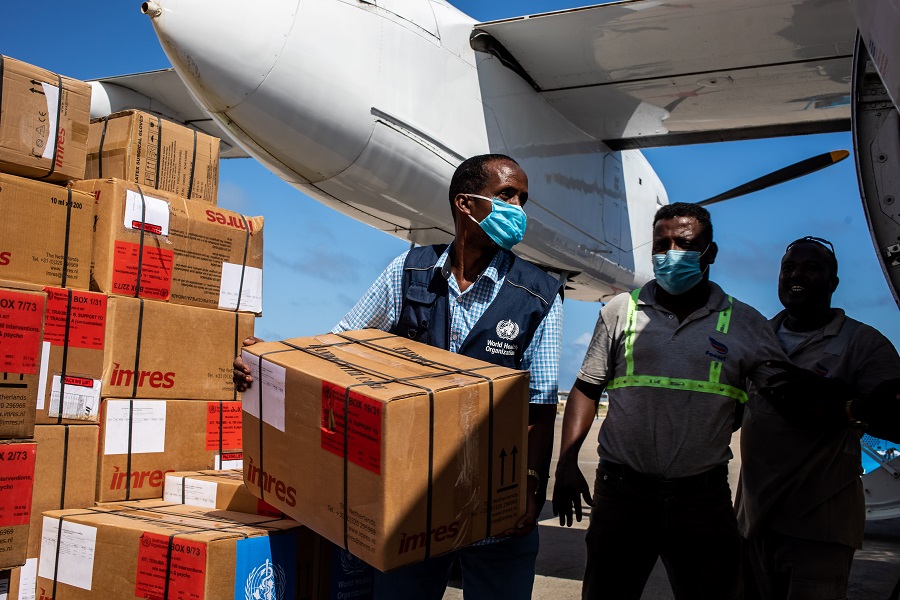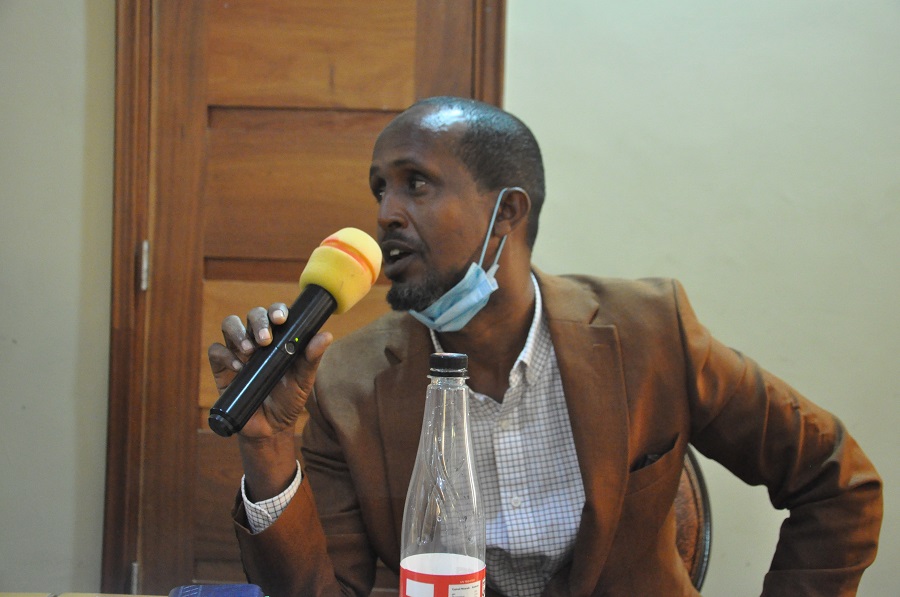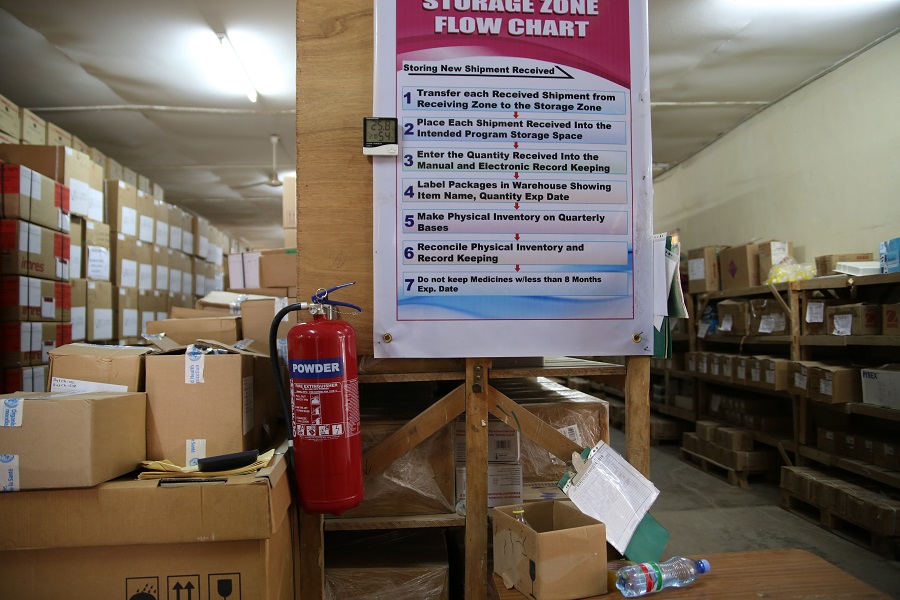19 August 2021 – World Humanitarian Day recognizes aid workers who put their lives on the line to help others, particularly during times of crisis. At the World Health Organization (WHO) country office in Somalia, humanitarian workers conduct their duties without hesitating, standing tall in the face of all kinds of challenges to support the Federal and State Government to ensure every last person can access health care.
This year, World Humanitarian Day is highlighting the immediate human cost of the climate crisis and raising awareness for leaders to take meaningful climate action for the world’s most vulnerable people.
Humanitarians working behind the scenes

In Somalia, climate changes have exacerbated a string of events – including recurrent floods, drought and cyclones, which in turn breed waterborne and vector-borne diseases and limit access to regular health services.
The timely and adequate response to prevent these diseases requires the pre-positioning of emergency medical supplies and other equipment in anticipation of any public health event that may constitute an outbreak.
Forty-six-year-old Hussein Hersi Shire has an important role at WHO related to this part of the emergency health response. Like a link in a chain, he coordinates the delivery and arrival of life-saving medical supplies into Mogadishu from various countries, storage at the WHO warehouse and then he coordinates with other warehouse colleagues to ensure supplies and equipment are distributed further to the states and communities in need.
Climbing the ranks with his dedication

Hersi is a popular humanitarian worker at WHO, as his colleagues recently nominated him for being a star performer of the year for his dedication, commitment and outstanding service to the Organization. A lean, modest man with an unassuming smile, he leads this humanitarian work of the Organization from behind the scenes. Starting his career as a guard at WHO in 1996, he climbed the ranks over the years and now serves as a logistics assistant based at the main WHO warehouse in Mogadishu.
Hersi believes he was able to advance his career by being honest, hard working, respecting other colleagues with different cultural backgrounds and maintaining his vision towards his goal.
A father of four Hersi makes a special mention of the support he has received from the WHO country office team, particularly the current Representative to WHO Somalia, Dr Mamunur Malik, whom he credits for giving WHO employees the opportunity to be part of life-saving activities, while motivating them in various ways.
 Explaining what humanitarian work means to him, Hersi has a glow in his eyes as he responds, “Since the security situation of Somalia is unpredictable, every morning before I leave to go to work, I have to assess the security of the road between my home and working premises. But work is important for me. Being a humanitarian worker entails helping communities and identifying their needs and the challenges they face. As we contribute in different ways, I feel as I support to deliver life-saving supplies, I am contributing to creating sustainable answers for real change.”
Explaining what humanitarian work means to him, Hersi has a glow in his eyes as he responds, “Since the security situation of Somalia is unpredictable, every morning before I leave to go to work, I have to assess the security of the road between my home and working premises. But work is important for me. Being a humanitarian worker entails helping communities and identifying their needs and the challenges they face. As we contribute in different ways, I feel as I support to deliver life-saving supplies, I am contributing to creating sustainable answers for real change.”




